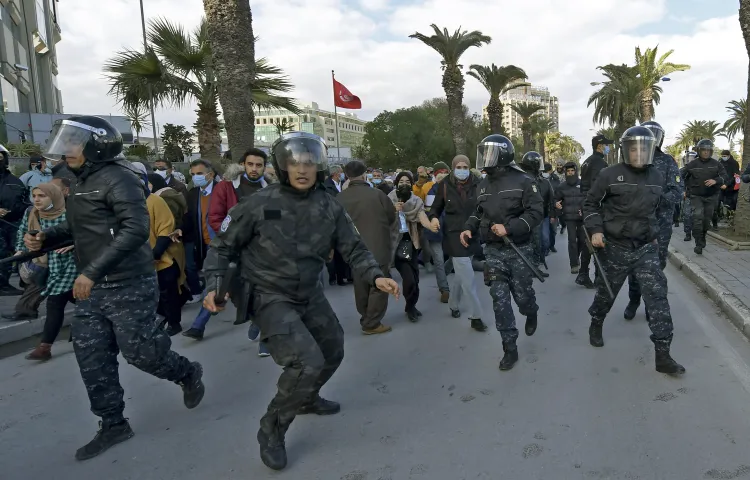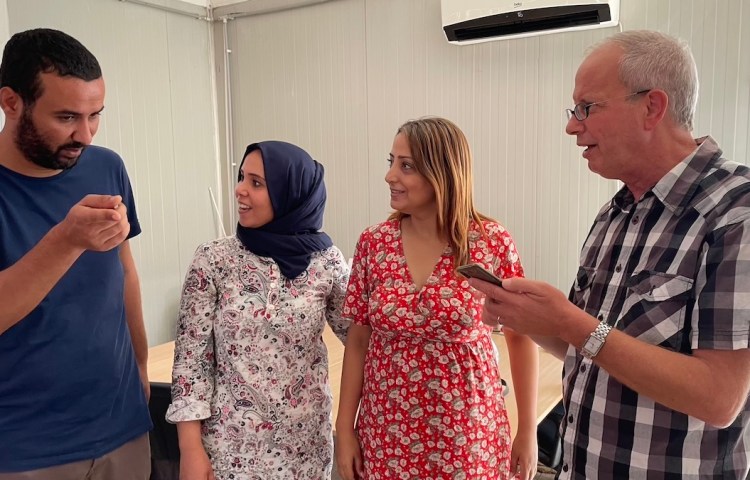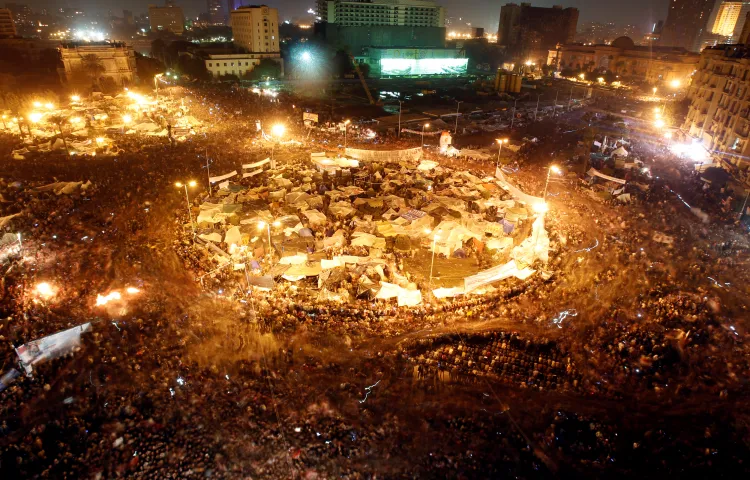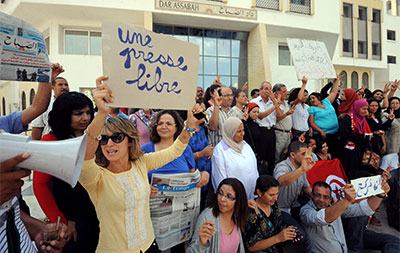
CPJ submits reports on Tunisia, Algeria, and Morocco to United Nations Universal Periodic Review
The human rights records of Tunisia, Algeria, and Morocco are under review by the United Nations Human Rights Council through the Universal Periodic Review (UPR). This U.N. mechanism is a peer-review process that surveys the human rights performance of member states, monitoring progress from previous review cycles, and presents a list of recommendations on how a…

Journalists tell CPJ how Tunisia’s tough new constitution curbs their access to information
When a CPJ researcher sat down with Lotfi Hajji, Tunisia bureau chief of Qatari broadcaster Al-Jazeera at a coffee shop in Tunis in July, we noticed that a man sitting directly behind us was recording our conversation on his phone. When we stood up to take a selfie with him in the background, the man…

Ten years after the Arab Spring, the region’s media faces grave threats. Here are the top press freedom trends
In early February 2011, Alaa Abdelfattah was in Egypt’s Tahrir Square, documenting and participating in the nascent pro-democracy uprising that would topple the government and transform the country and the region. Today, he is in prison on anti-state and false news charges, which his family believes are partly retaliatory for his work. Abdelfattah is one of…

Upcoming elections could make or break Tunisia’s fledgling free press
Tunisia’s progression to a freer society took center stage this month, as journalists, digital rights activists, and tech companies gathered in Tunis for RightsCon and the IFJ congress. Tunisia has secured greater press freedom than many of the Arab Spring countries, but local journalists told CPJ that with elections slated for this year, challenges including…
Tunisia constitution needs stronger free press guarantees
Human rights groups and legislators are praising the third and final draft of Tunisia’s new constitution as one of the most liberal charters in the Arab world–and for being arrived at by a remarkably consensual process among political parties, especially if compared with neighboring Egypt and Libya.

Receding hopes for press freedom in Tunisia
These days, press freedom in Tunisia feels ever more distant. Many journalists believed that media freedoms, which were virtually nonexistent under former President Zine el-Abidine Ben Ali, would grow after his ouster. During the aftermath of the December 2010 uprising, an independent press blossomed and special commissions were set up to reform the media sector.…
Tunisian media: One year after the revolution
The doses of freedom that the Tunisian revolution injected into national media have not been sufficient to revive it after decades of systematic destruction. It is not surprising that our evaluation of media one year after the tyrant fell reveals more negativity and pessimism.
Tunisian TV station’s suspension reflects tenuous freedom
On Sunday, the privately owned broadcaster Hannibal TV was forced off the air for more than three hours. The state-owned news agency Agence Tunis Afrique Presse (TAP) issued a statement stating that an arrest warrant had been issued for the station’s owner on charges of “high treason” for an alleged “plot to destabilize national security.”…
Will Tunisia’s ‘Internet revolution’ endure?
There has been a great deal written online about how much of a positive role the Internet played in recent events in Tunisia (if you’d like to catch up, Alex Howard’s link round-up provides a good summary of the many sides, both for and against). At CPJ, our focus is on slightly different questions: How…
Freed! Fahem Boukadous released in Tunisia
For those who have spent countless hours exposing and combating Tunisia’s vast press freedom abuses, today is truly a glorious day. Tunisian authorities released the ailing imprisoned journalist Fahem Boukadous, a day after CPJ called on the transitional government to honor its pledge to free all political prisoners. Today, we can loudly proclaim that no…